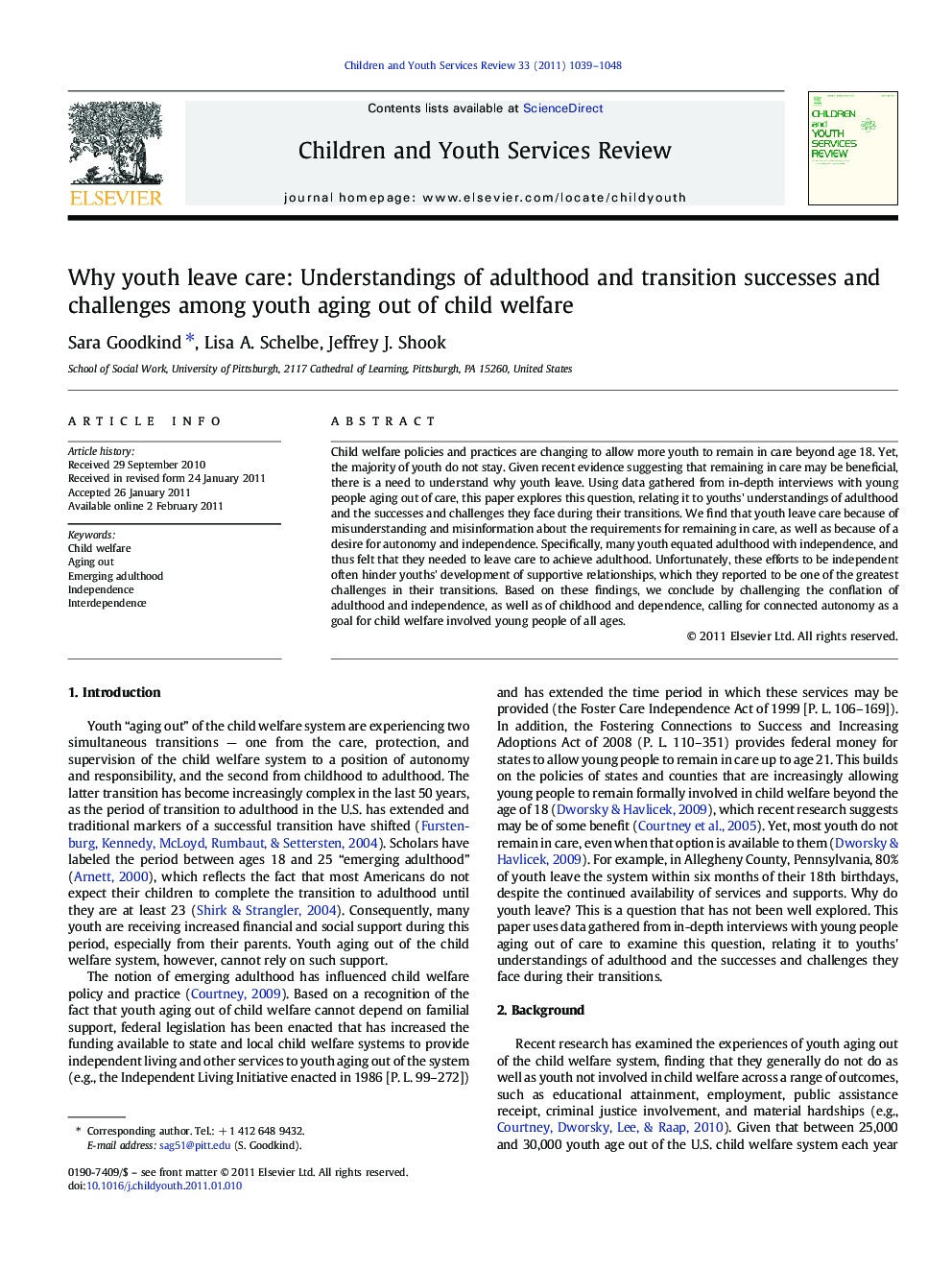| Article ID | Journal | Published Year | Pages | File Type |
|---|---|---|---|---|
| 347350 | Children and Youth Services Review | 2011 | 10 Pages |
Child welfare policies and practices are changing to allow more youth to remain in care beyond age 18. Yet, the majority of youth do not stay. Given recent evidence suggesting that remaining in care may be beneficial, there is a need to understand why youth leave. Using data gathered from in-depth interviews with young people aging out of care, this paper explores this question, relating it to youths' understandings of adulthood and the successes and challenges they face during their transitions. We find that youth leave care because of misunderstanding and misinformation about the requirements for remaining in care, as well as because of a desire for autonomy and independence. Specifically, many youth equated adulthood with independence, and thus felt that they needed to leave care to achieve adulthood. Unfortunately, these efforts to be independent often hinder youths' development of supportive relationships, which they reported to be one of the greatest challenges in their transitions. Based on these findings, we conclude by challenging the conflation of adulthood and independence, as well as of childhood and dependence, calling for connected autonomy as a goal for child welfare involved young people of all ages.
Research highlights► Youth leave care because of misunderstanding and desire for independence. ► Youth equate adulthood with independence and believe they must leave to become adults. ► Efforts to be independent hinder youths' development of supportive relationships. ► Relationships are one of youths' primary challenges in their transitions. ► Promotion of connected autonomy may be a good alternative to independence.
